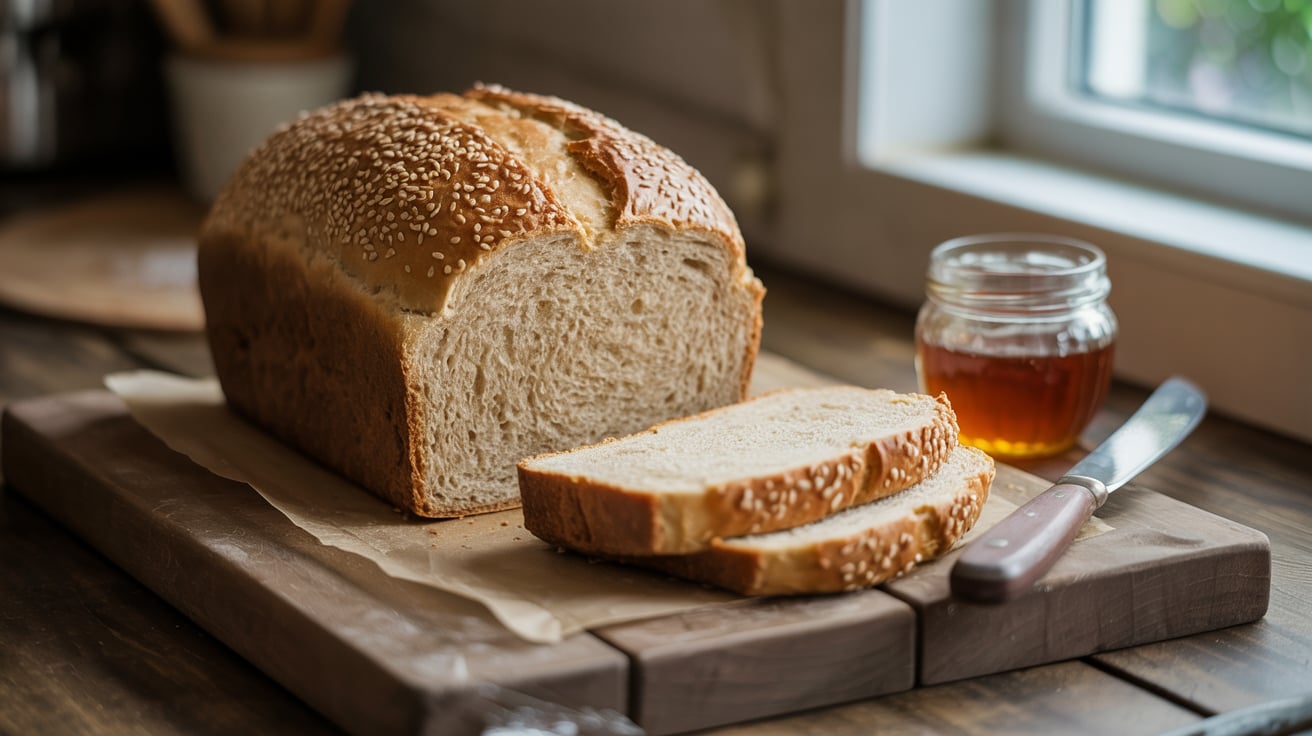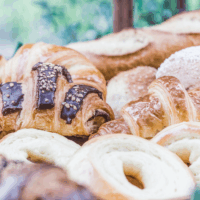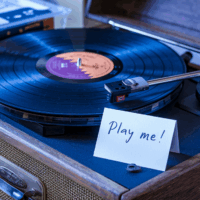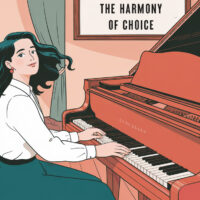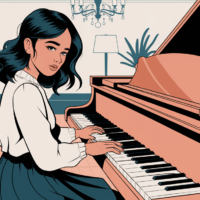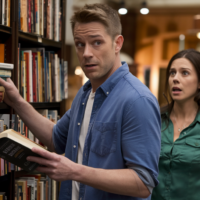The notice appeared on a Tuesday, taped to the lobby door like a verdict:
“Building to be demolished. All tenants must vacate by December 31st.”
Mabel read it three times before the words sank in. Forty years she'd lived in apartment 3B. Forty years of watching the city change through her kitchen window, of hearing the Petrova family's footsteps above, of smelling Mr. Williams' coffee brewing across the hall.
But it wasn't just her home they were going to destroy. They were also going to kill Evangeline.
She hurried back to her apartment, where the old ceramic crock sat on the counter, its contents bubbling peacefully. Evangeline, the sourdough starter that had lived in this building since 1924, passed from tenant to tenant like a delicious secret.
The journal beside it told the story. Mrs. O'Brien had begun it, her spidery handwriting explaining how she'd brought the starter from Ireland.
“For the new country,” she'd written. “May she rise as we do.”
Over the decades, Evangeline had moved through the building. The Morettis in 2A had her during the Depression, adding recipes for penny loaves. The Nguyens had incorporated her into bánh mì during the '70s. She'd made challah with the Goldbergs, injera with the Tesfays, and now Mabel's weekly batch of Chinese steamed buns.
Each entry included recipes, yes, but also stories. First jobs celebrated with fresh bread. Mourning eased by the rhythm of kneading. New babies welcomed with soft rolls. The journal was a living history of the building, told in flour and time.
Mabel opened to her first entry from 1983: “Received Evangeline from Mrs. Davidson in 4C. She says the starter prefers Sinatra while rising. Will test with Teresa Teng instead.”
A knock interrupted her memories. Carlos Ruiz from 2B stood in her doorway, demolition notice crumpled in his fist.
“Mabel, did you see—”
“I saw.” She gestured him in. “Tea?”
As she put the kettle on, Carlos noticed the journal. “Is that the bread book? My grandmother wrote in there.” He flipped through pages. “Here, 1955. She drew pictures because her English wasn't good yet.”
They sat with tea, reading entries aloud. Carlos had never known that Evangeline had spent six months with his family, or that his grandmother's conchas recipe had become building legend.
“We can't let them destroy this,” he said suddenly. “Not the building, not Evangeline, not… us.” He gestured at the journal.
“What can we do? We're just tenants.”
“Maybe what we need to be, really be, is together.”
Within hours, Carlos had knocked on every door. By evening, Mabel's apartment overflowed with neighbors, many meeting properly for the first time. The journal passed from hand to hand, revealing connections none had known existed.
“My father wrote this!” Adanna from 1A exclaimed. “I thought he only knew how to burn toast.”
“Wait, your mother taught my mother to braid challah?” Rebecca from 3C asked Mr. Kim from 4B. “She never said her teacher was Korean!”
Young Sam from 5A, who they'd all assumed lived on takeout and energy drinks, sheepishly admitted, “I've been wanting to ask about Evangeline for years. My thesis is on urban food traditions.”
“Then you should have her next,” declared Mrs. Petrova from 4A, the building's unofficial matriarch. “But first, we fight.”
They formed committees with the efficiency of people who'd lived in small spaces. Sam researched historic preservation laws. Rebecca, a lawyer, offered pro bono help. Mr. Williams, a retired journalist, promised media contacts.
But Carlos had another idea. “We bake,” he announced. “We show them what they're destroying. Not just walls, our community.”
They organized a bread festival in the courtyard. Each family would make something with Evangeline, sharing their stories. Mabel worried the starter wouldn't survive being divided so many ways, but Evangeline seemed to thrive on the attention, bubbling more vigorously than ever.
The day arrived gray and drizzling, but the courtyard filled with neighbors, reporters, and curious passersby. Tables groaned under the weight of history made edible. The Petrovas' black bread, the recipe brough from Soviet Russia. The Williams family's cornbread, perfected over generations since slavery's end. Adanna's agege bread, her father's legacy finally realized.
Sam presented his research, showing how Evangeline represented one of the oldest continuous food traditions in the city.
“This starter has survived the Depression, two world wars, countless personal tragedies and triumphs. It's not just yeast and flour, it's living history.”
Mrs. Goldberg's granddaughter, visiting from Israel, taught children to braid challah. “My grandmother learned from Mrs. Kim's mother,” she explained. “And now I teach you. This is how tradition works, it crosses every boundary.”
The demolition company representative arrived at noon, looking uncomfortable amid the celebration. Rebecca met him with a folder of documents.
“Historic designation paperwork,” she said sweetly. “And a petition with fifteen thousand signatures. Turns out people care about stories.”
But it was Evangeline who provided the final argument. When the representative tasted Mr. Kim's honey wheat bread, his expression shifted. “My grandmother made something like this,” he said quietly.
Mabel brought him the journal. “Maybe she wrote about it?”
He found her entry from 1962. Anna Kowalski, 3A. The same apartment where Mabel now lived. She'd written about teaching her grandson to shape rolls, how his small hands had worked beside hers.
“That's me,” he whispered. “I'm the grandson. I lived here.”
The building was saved by spring. The developer, faced with community opposition and surprising media attention, sold to a preservation group. The tenants formed a co-op, keeping rents stable and hearts full.
Evangeline continued her journey, now formally documented in a climate-controlled case in the lobby, though her real home remained the kitchens upstairs. The journal gained a digital companion, videos of residents sharing techniques and stories.
On the first anniversary of the demolition notice, they held another festival. This time, former tenants came from across the country, drawn by Sam's viral documentary about Evangeline.
Mrs. Kowalski's grandson returned with his own grandchildren. “I want them to understand,” he said, watching them shape dough with Mabel's patient guidance. “How something so simple can hold so much.”
As evening fell, Mabel stood in the courtyard, watching neighbors share food and stories. Sam appeared at her elbow with fresh rolls.
“Evangeline's great-great-great-granddaughter,” he said, indicating the starter he'd cultivated from Evangeline. “For the new building on Fifth Street. They want to begin their own tradition.”
Mabel smiled. “Mrs. O'Brien would approve. ‘May she rise as we do.'”
Above them, windows glowed with warm light. In each kitchen, starters bubbled and rose, carrying forward stories yet to be written. The building stood solid against the darkening sky, no longer just apartments but a fortress built of flour, water, time, and the unbreakable bonds formed when strangers decide to rise together.
In Mabel’s apartment, Evangeline bubbled contentedly, ready for tomorrow's bread and whatever stories it might bring.
The Sourdough Starter – Flash Fiction June 30th 2025
